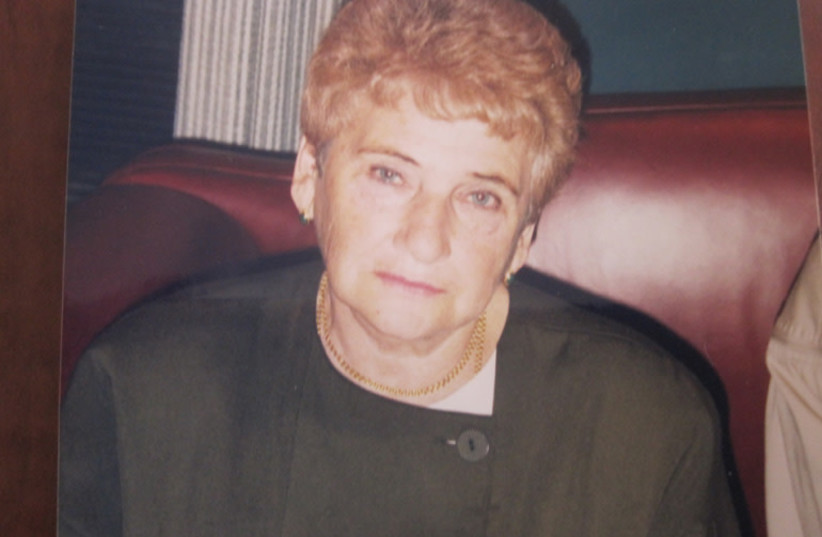NEW YORK - Zhanna Berina has lived in Brooklyn since 1989, but when she reads the news about the ongoing Russian invasion of Ukraine, she is transported back to her childhood in Odessa.
“I’m not a crier, but I’m crying right now,” Berina said over Zoom with the assistance of a Russian interpreter.
The 91-year-old Holocaust survivor originally lived with her family in the Slobodka ghetto in Odessa. Her father was drafted in the early days of World War II, and Berina recalls being shipped alone to a cloth factory in 1942. She returned to Odessa after all Domenevka area camps were liberated on March 28, 1944.
Despite her roots, Berina said that she does not identify as Ukrainian. “I have never met a Jew who does, but as an American, yes, I do identify as an American mostly,” she said.
Berina, who immigrated to the United States with her daughter and grandchildren three decades ago, serves as vice president of the Association of Holocaust Survivors from the Former Soviet Union.

She expressed a desire for the American government to do more to help, and applauded Israel’s response.
“Every Jew who can leave Ukraine should,” Berina said. “America needs to accept refugees, and quickly. It would be a shame not to.”
She said that “Israel is the safest place in the world right now. Donate money to Israel.”
Berina described her reaction to the current war in Ukraine as “horrified.” She is not alone. Russia’s invasion has unleashed significant devastation worldwide, but for Holocaust survivors in the US, especially those from Ukraine, the crisis that has cost many lives has sent a unique shock.
New York City is home to the highest concentration of Russian-speaking immigrants in the United States, with the American Jewish Committee estimating that there are 300,000 Russian-speaking Jews in New York. Brooklyn’s Brighton Beach area is nicknamed “Little Odessa” after the port city in Ukraine, and on these streets, Russian and Ukrainian are sometimes more frequently heard than English.
Kira Brodskaya, who turns 90 this month, fled Kharkiv at the age of nine. Active in the Russian-speaking Jewish community of her Queens neighborhood, Brodskaya said she is anxious for her friends who live 8,000 km. away in Ukraine, many of whom are fellow Holocaust survivors.
“I watch the news and cry every day because I remember when Hitler bombed in our neighborhood,” she said. “[Russia] claims it’s a military operation, but they are bombing residences. America took us, they should take refugees now.”
Brodskaya noted that the lingering corona pandemic has made this time of increased worry even more lonely and challenging for her and other elderly immigrants. “My daughter and son-in-law can’t visit,” she said.
Shelley Rood Wernick, managing director of the Jewish Federations of North America’s Center on Holocaust Survivor Care and Institute on Aging and Trauma, said the heightened anxiety and grief Berina and Brodskaya expressed is common, as many Holocaust survivors feel as if they are being traumatized again by the Russian invasion.
“Trauma can be very damaging,” Wernick said. “We have developed personalized care that takes knowledge of a person’s trauma and work to make them feel safe and empowered.”
Wernick noted that Holocaust survivors who came to the US from the former Soviet Union in the past three decades live notably different lifestyles than survivors from Western Europe who immigrated to America in the 1940s and ’50s. The former, according to Wernick, are more likely to live in poverty, and often are not fluent in English.
“The majority of survivors who need our services are Russian-speaking,” said Wernick. “They suffered under World War II and then again under Communism. They didn’t integrate as well into American society or Jewish communities because [the ban on] religion was strict in the Soviet Union. There’s more fear of government and more fear of asking for help.”
Wernick added that some Holocaust survivors are speaking about their experiences now for the first time. “[The war in Ukraine] is bringing up things from their childhood that they haven’t spoken about,” he said.
JFNA is running an emergency relief campaign to aid the Jewish community of Ukraine and others impacted by the war. The national federation has already raised at least $24 million, surpassing their initial $20m. goal.
Manny Mandel, 85, immigrated to New York in 1949, just in time for his bar mitzvah. Born in Hungary, Mandel and his parents spent six months in the Bergen-Belsen concentration camp. Although he only has distant family ties to Ukraine, Mandel – who pre-pandemic was an active volunteer at the US Holocaust Memorial Museum and continues to volunteer for JFNA’s Aging and Trauma Work Group – expressed empathy with Ukrainian refugees.
“In my experience, trauma is trauma whether it comes out of the Holocaust or Ukraine or any other devastating experience,” he said. “But it’s not to the point where I’m frightened at night. I don’t have a particular love for Ukraine. They’ve never been a particularly friendly community.”
He pointed to Babyn Yar, the site of the massacre in Kyiv where nearly 34,000 Jews were murdered over a two-day period during World War II. Approximately 1.5 million Jews were killed in Ukraine during the Holocaust.
Mandel said the current situation should not be compared to the Holocaust. “It’s an enormous pogrom,” he said. “I lived through a pogrom, too, which is a senseless, purposeless action by the government, an absurdity of enormous proportion. My reaction to both is exactly the same. But [the current invasion] is not Jewish-related.
“I don’t know what American Jews can do other than show support and involvement in protests. I don’t focus too much on it, not because it brings back painful memories but because there isn’t a blessed thing I can do. I don’t think [American Jews] have been so impacted, but maybe we should be more involved.”
